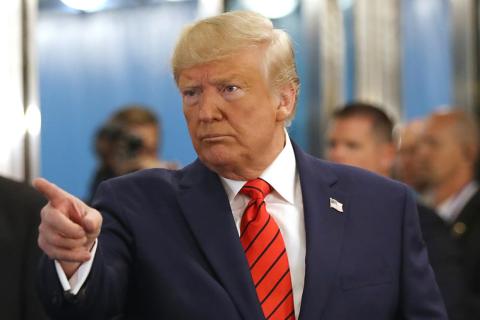The parties are not giving voters much choice going into the 2020 presidential election. While there are still 19 candidates running on the Democratic side, party pundits and media allies are declaring it to be a three-person race at this point between Joe Biden, Elizabeth Warren, and Bernie Sanders, limiting the coverage of all other candidates.
They hand-pick the polls that decide which candidates get on the debate stage. They choose for voters -- even their own -- who is viable and who isn't.
Meanwhile, the RNC has no plans for party debates, despite three challengers emerging in the 2020 race. Four state parties have canceled their primary or caucus, denying their own voters a choice (all these states are closed primary states so only Republicans could participate). And now, ENM news reports that 37 states have changed their delegate selection rules to prevent any type of division on the national convention floor.
"The new delegate guidelines are the culmination of a 10-month effort by Trump advisers to tighten the president’s grip on the Republican Party ahead of the general election. It means that even if the three candidates challenging Mr. Trump in the Republican primary gain vote shares, they almost certainly won’t translate into speeches or jeers from supporters of these candidates when the convention is taking place," ENM News reports.
Some states changed their rules to make it more difficult for challengers to pick up any delegates:
"Republican parties in states like Massachusetts — a blue state that is nonetheless delegate-rich at party conventions because of its large population — have changed their rules so that any candidate who wins more than 50 percent of the vote in the primary captures all the delegates.
New York, the president’s home state and another with a large population, has a new Republican Party chairman, Nick Langworthy, who is viewed favorably by the national committee and the White House. There, too, the rules now allow for a winner-take-all delegate award if a candidate clears 50 percent of the vote."
The report goes on to say that despite the president's high polling numbers among Republican voters, his campaign wants to avoid a situation similar to the 2012 Republican National Convention, when delegates supporting Ron Paul presented a challenge to Mitt Romney.
Earlier this week, US Rep. Robert Inglis, along with another South Carolina voter, filed a lawsuit against the state party for canceling its 2020 presidential primary. Interesting to note, one of Trump's challengers is Mark Sanford, who served as governor of South Carolina as well as a US congressman for the state's 1st district.
There is no question, however, that in the end voters will be told that their only two options are the anointed candidates of two increasingly unpopular political parties. Voters are left with two choices in this system: fall in line or sit on the sidelines.
